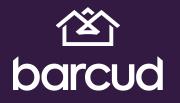Case Study – Barcud – Mental Health & Wellbeing Toolkit

CASE STUDY – Barcud
Mental Health & Wellbeing Programme
This unique and enjoyable programme, developed and delivered by Cortecs Cerebrol Ltd, has been designed by psychologists, to enhance and protect the mental health and wellbeing of care workers and mitigate some of the impact of the ongoing Covid-19 pandemic.
The programme combines cognitive behavioural therapy, neuroscience and the latest psychological research to provide a range of techniques and strategies to rebuild resilience, improve low mood and reduce anxiety.
Your company may be eligible for full funding on this programme – contact us info@cortecs.co.uk for details.
Company Profile
Barcud is a not for profit housing association formed from the merger of Tai Ceredigion and Mid-Wales Housing association in November 2020.
17 members of the Barcud team took part in the Mental Health and Wellbeing programme in November and December 2020.
Louize Evans, Supported Housing coordinator who organised the participation of the Barcud team and has kindly agreed to provide us with feedback on her and the team’s experience of the programme.
Case Study Questions
- What was the aim of participating in the Mental Health and Wellbeing programme?
Because of the nature of the job that we do and the year that we’ve been having, we jumped at the chance of being able to learn some new coping mechanisms to be able to reassure our loved ones, colleagues and tenants that there is a way of being able to cope through this.
- Has the programme achieved these aims?
It’s strengthened us as a team. It’s given us a lot more skills and the coping toolkit we’ve got now is much bigger than before.
- What have been the impacts of this programme?
A lot more connection within our team and it’s enabled us to step back and think before responding to people and try to understand the reasons behind people’s behaviour, making us less judgemental. It’s made us see how people deal with things differently and we don’t know what a person is dealing with.
- How have you and / or your team used the programme information and strategies?
Most of us are still doing the Gratitude every day because it’s such an easy thing to do. We’ve all taken something from it and it’s made us understand that the little things we do make a big difference. We sometimes message each other at the end of the day asking ‘What have you done today?’ Someone said that they made an old lady smile and giggle by telling her a silly joke. We wouldn’t have thought about what a good thing that is before! Also knowing where our boundaries are has been extremely useful and knowing that we can’t do everything all of the time.
- What has been the feedback from individuals who have attended the programme?
They have learned lots of new tools and coping strategies for managing negative emotions or situations. They’re using a lot of the Toolkit in their personal lives as well as work life for example the Worry Tree which is ‘bloody brilliant!’ It’s a well-structured course and the trainer was nice.
- What would you say to individuals or organisations who are considering participating in the programme?
Honestly, just do it! It’s a really, really positive programme and has had such a positive effect on me and my team. It has definitely strengthened our team. I can only say positive things about it.
- Are there any other comments about the programme you’d like?
A follow up course would be great! The trainer was really, really good and we had a giggle. I really appreciated being part of it.
Make an enquiry